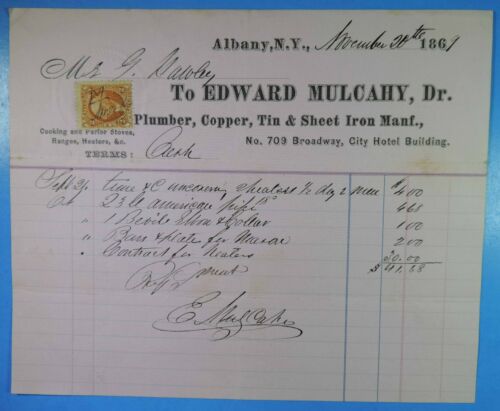
The roofing business profit margin is the difference between what a company makes from its net sales and how much it spends on its products. This is crucial information to have for any company. It can help them pinpoint areas where they might need to improve their profitability.
Profit Maximization
For roofing contractors, it is vital to make the most of your profits to ensure that your business grows and expands. Companies that specialize in roofing have high overheads and high labor costs. These costs can negatively impact the bottom line. So it is vital to find ways of reducing these costs so you can maximize your profits.
These methods will help you increase sales by helping you attract new customers and reducing your competition. Another way to increase your sales is to ensure that you are doing the best possible job for your customers, so that they will want to refer you to their friends and family.

Achieving a higher profit margin
You can increase your profits by making sure you charge fair prices for the work you do. The cost of materials and the cost of the labor that you hire are two major factors in determining the price of your roofing job. It is crucial to calculate the markup for your roofing job so you can ensure you are charging a fair price.
Knowing the industry average profit margin will help you determine how much profit you can make on a roofing project. This can help you to understand how much money you need to make in order to be profitable and will give you a better understanding of what your goals are.
Estimating a Job’s Successibility
Before you accept a roofer into your business, it is very important to estimate the gross profit of the job. This will let you know if the job is profitable or not, and it will allow you to decide whether or not to go ahead with it.
A roofing crew can complete 10 jobs per calendar month. That's 120 roofs per annum. They can expect to generate $480,000 in annual revenue. This is assuming that they charge an average of $4,000 for each roof.

This equates to a net profit of $75,360 for a single roofer. Although this figure is quite low, it shows how it is possible to make profits even on a small scale.
Choosing a Good, Better, and Best Pricing Strategy
A roofer's best strategy is to find a good, better and most efficient pricing strategy. This will allow them to charge a fair rate for their work while still offering the best service to their customers. This will not only help them to retain customers and prevent callbacks, but it will also enable them to achieve a higher profit margin for their efforts.
FAQ
How much does it set you back to get building permission?
It varies depending on the state and the complexity of your proposal. It may also depend on whether you apply for permission to build or extend your current house. It can take several months to complete the application process. Be prepared to wait until it is completed.
Are there additional considerations I need to make?
Yes. You should check the laws in your area about the types of projects that you are permitted to undertake and the requirements you must meet. You might need approval from the council in order to build in certain states. Some states only require you to notify them about your plans. Check with your local authorities to see where they stand on the issue.
Is there a way to prepare for negotiation before hand?
Yes!
There are many ways to prepare yourself for negotiations.
One option is to set out the terms of the agreement in writing
Statistics
- (d) Contractor disputes related to compliance with its obligation shall be handled according to the rules, regulations, and relevant orders of the Secretary of Labor (see 41 CFR60-1.1). (acquisition.gov)
- Depending on the client's trustworthiness and financial stability, a deposit is usually 10 to 50% of the total contract amount. (lawdepot.com)
- Don't take their anger personally, they are mad about the situation 99% of the time. (activatemylicense.com)
- (ii) Name, address, and telephone number of each proposed first-tier subcontractor with a proposed subcontract estimated at $10 million or more. (acquisition.gov)
- Reasonable late fees go up to 25% per year on unpaid sums. (lawdepot.com)
External Links
How To
How do you write a good service agreement?
You must remember two things when writing a service agreement.
First, you must satisfy the requirements of the customer.
Second, you must comply with all legal requirements.
You need to make sure that these things are included in your service agreement.
-
Identify the parties.
-
Define the subject matter of the agreement.
-
Specify the term of your agreement.
-
Find out if you offer any warranties.
-
Describe the obligations, as well as liabilities, of each party.
-
Set the payment method.
-
Clearly explain how disputes will be resolved.
-
Please provide details regarding any restrictions or special instructions.
-
Both parties must sign the contract.
-
Include a clause saying that the agreement is understood and has been fully read before being signed.
-
Make sure that you have a copy of the agreement with you.
-
Before you send your service agreement to the buyer, ensure that you carefully review it.
-
You should immediately contact your supplier if you notice any problems with the agreement.
-
Send the revised version after everything has been fixed.
-
After the buyer confirms that they have accepted the changes, you should not sign the agreement.
-
Keep a copy and finalized copy of the original agreement.
-
It is possible that a service provider may be legally responsible in certain countries for providing quality services.
-
In case of dispute, keep a record of all correspondence between yourselves and the customer.
-
Professional advice is always a good idea when you are drafting a service contract.
-
The buyer can ask for changes to the contract terms once they have been agreed to.
-
Before you agree to any change, make sure you check that it is your decision.
-
Never accept a request for a change without first checking.
-
Tell the customer why you don't want to accept the change.
-
If they still don't agree, inform them that it is unacceptable.
-
If the customer refuses to accept your decision, then refuse to complete the contract.
-
Once the customer has accepted your decision, you can proceed with the contract.
-
If you have agreed to a change in the contract terms, you should also agree to the new conditions.
-
Before you send the contract out, ensure you have thoroughly read it.
-
You must also ensure it conforms to the law.
-
Send the contract to the buyer after you have completed it.
-
Keep a copy for future reference.
-
Failure to follow even one of these rules could lead to you losing your savings.
-
It does not take long to write up a good service agreement.
-
The more detailed, the better.